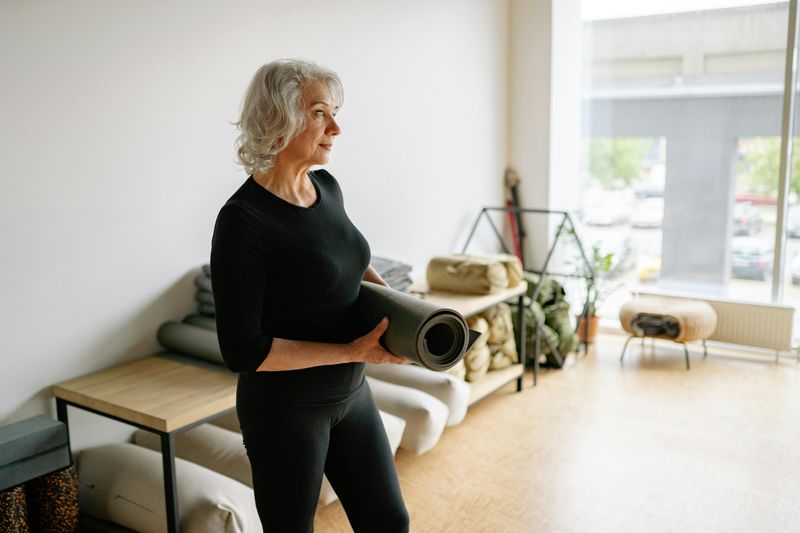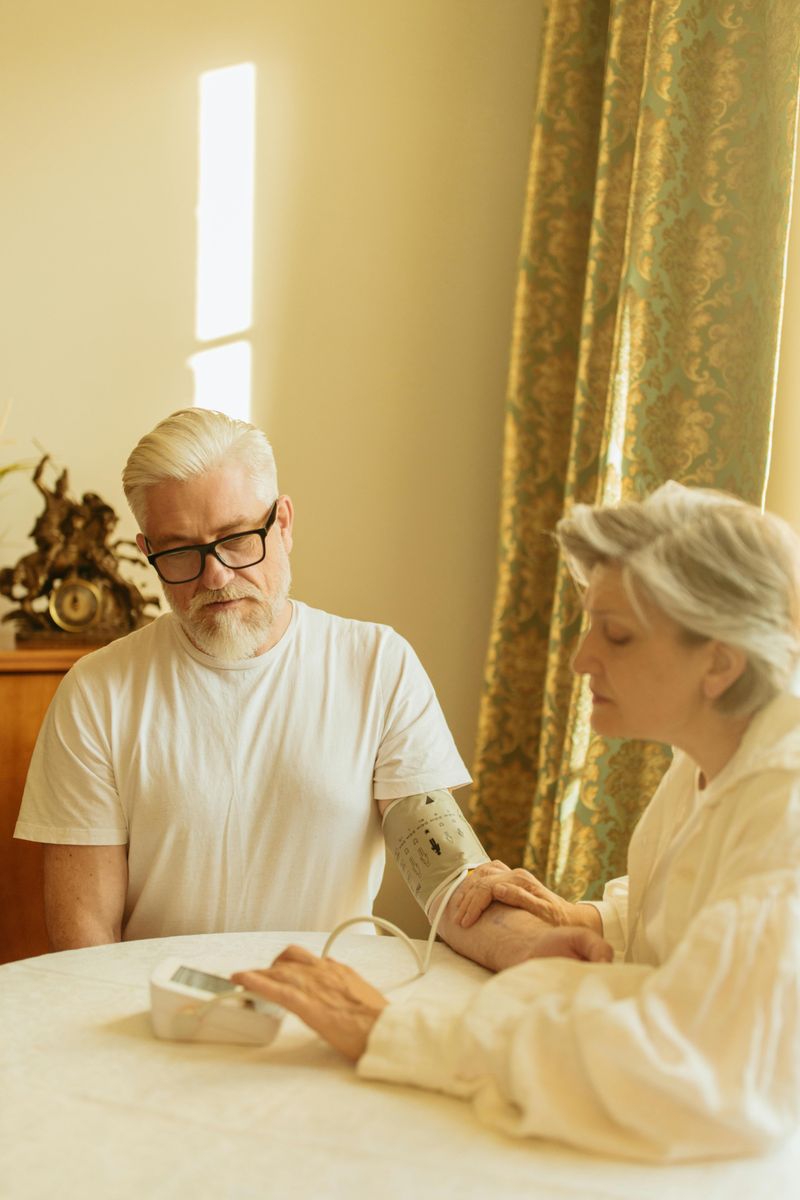Not in the Mood for Touch? 11 Reasons Women Feel This Way as They Age

As women age, their relationship with physical touch and intimacy often undergoes significant transformations. These changes can sometimes lead to a decreased desire for physical closeness. A variety of factors contribute to this shift, each unique in its origin and impact. From hormonal fluctuations to the desire for more personal space, the reasons are as diverse as they are complex. Understanding these aspects is crucial for both women experiencing these changes and their partners, who may be trying to navigate this new terrain. This blog post explores eleven reasons why women may feel less inclined towards touch as they grow older.
1. Hormonal Changes

The dance of hormones during menopause is not only a rite of passage but also a profound bodily change. As estrogen dips, it brings along a decline in libido, making physical touch less appealing. This shift is often accompanied by mood swings and hot flashes, painting a complex picture of menopause.
For some women, these hormonal changes can turn once pleasurable sensations into discomfort, affecting their desire for intimacy. This period is not just about physical changes; it’s a time of emotional and psychological transition as well. Women may find themselves redefining their relationship with touch and connection.
2. Physical Discomfort

Imagine waking up every day with a body that feels foreign, as if it belongs to someone else. For many aging women, arthritis and chronic pain transform gentle caresses into unwelcome irritants. Even a light touch can feel like an intrusion, rather than a source of comfort.
Sensitive skin, another common issue, exacerbates this discomfort. These physical discomforts are more than just a nuisance; they can reshape a woman’s relationship with physical affection. The result is a growing preference for personal space over proximity, a need forged in the fires of daily aches and pains.
3. Decreased Energy

Fatigue is a silent thief, slowly draining the desire for physical closeness. Balancing work, family, and social commitments often leaves little energy for intimate moments. It’s like trying to light a fire with damp wood; the spark just isn’t there.
Lower stamina isn’t just about feeling tired; it’s about reprioritizing energy for essential tasks. As energy wanes, so does the interest in maintaining physical relationships. When every ounce of energy is accounted for, even the thought of touch can feel exhausting rather than inviting, shifting priorities towards rest and recuperation.
4. Body Image Concerns

The mirror can be an unforgiving critic. As bodies change with age, many women grapple with self-image issues that affect their comfort with touch. Weight gain, skin changes, and aging appearance can create a barrier to intimacy.
These concerns aren’t just skin deep; they delve into a deeper sense of self-worth and acceptance. For some, the thought of being seen or touched becomes daunting, leading to a withdrawal from physical contact. This internal struggle is a journey towards self-acceptance, impacting how they perceive touch and connection in their lives.
5. Emotional Shifts

As years go by, the heart seeks solace in emotional connections over physical ones. Women in their later years often prioritize deep, meaningful relationships. The craving shifts from the tangible to the intangible, from touch to talk.
This shift isn’t a loss, but a transformation of needs. Emotional intimacy becomes the cornerstone of relationships, offering a richer, more profound connection. It’s about understanding, empathy, and shared experiences, where words hold more weight than physical presence. This emotional evolution reflects a matured perspective on relationships and intimacy.
6. Independence & Autonomy

In the tapestry of life, independence becomes a cherished thread for many aging women. They relish the freedom to decide when and how they engage in physical touch. This autonomy becomes a sanctuary, a space free from obligation.
With age, personal space is no longer a luxury but a necessity. Women find empowerment in setting boundaries, a reflection of their evolved self-awareness. Embracing autonomy transforms touch from a routine into a choice, reinforcing their sense of self and individuality in a world that often demands conformity.
7. Past Negative Experiences

Memories have a way of lingering, especially those etched by past traumas. Unhealthy relationships and negative experiences can resurface, casting long shadows over current desires for touch.
For many, these experiences become a silent wall between them and affection. The journey towards healing is personal and complex, often requiring time and understanding. As women navigate these memories, their comfort with touch may fluctuate, guided by their path towards emotional recovery and resilience.
8. Stress & Mental Load

In the whirlwind of modern life, stress becomes an unwelcome companion. Women juggling careers, family, and finances often find their mental bandwidth stretched to its limits. Physical touch can feel like another demand, rather than a comfort.
The mental load of caregiving and daily responsibilities leaves little room for intimacy. In the quest to balance life’s demands, the desire for touch is often sidelined, making way for more pressing concerns. This reprioritization reflects a shift in focus as women navigate the complexities of modern life.
9. Changing Priorities

Life is a journey of shifting priorities. For many women, the focus moves away from physical intimacy towards personal interests, family, and self-care. Hobbies and personal growth take center stage, redefining what fulfillment looks like.
This isn’t about neglecting relationships but enriching them in new ways. As passions are rediscovered, they breathe life into everyday existence, offering joy and satisfaction beyond touch. These changing priorities reflect a newfound appreciation for life’s varied experiences.
10. Medical Issues

Medical conditions can be an insidious barrier to touch. From vaginal dryness to hot flashes, these issues transform intimacy into a challenging endeavor. Medication side effects also play a role, altering sensations and comfort levels.
For many women, these medical hurdles demand adaptation and understanding. The path to intimacy becomes a careful negotiation between desire and physical limitations. Addressing these challenges involves open communication and medical guidance, paving the way for a more comfortable and fulfilling relational experience.
11. Desire for Respect & Boundaries

Aging often brings a stronger sense of self, where respect and boundaries become paramount. Women learn to say no to touch that doesn’t feel right, embracing their right to choose.
This desire for respect isn’t about exclusion, but about cultivating relationships based on mutual understanding and consent. Boundaries become a framework for healthier connections, where touch is welcomed on one’s own terms. This empowered stance reflects a lifetime of growth, wisdom, and self-respect.

Comments
Loading…